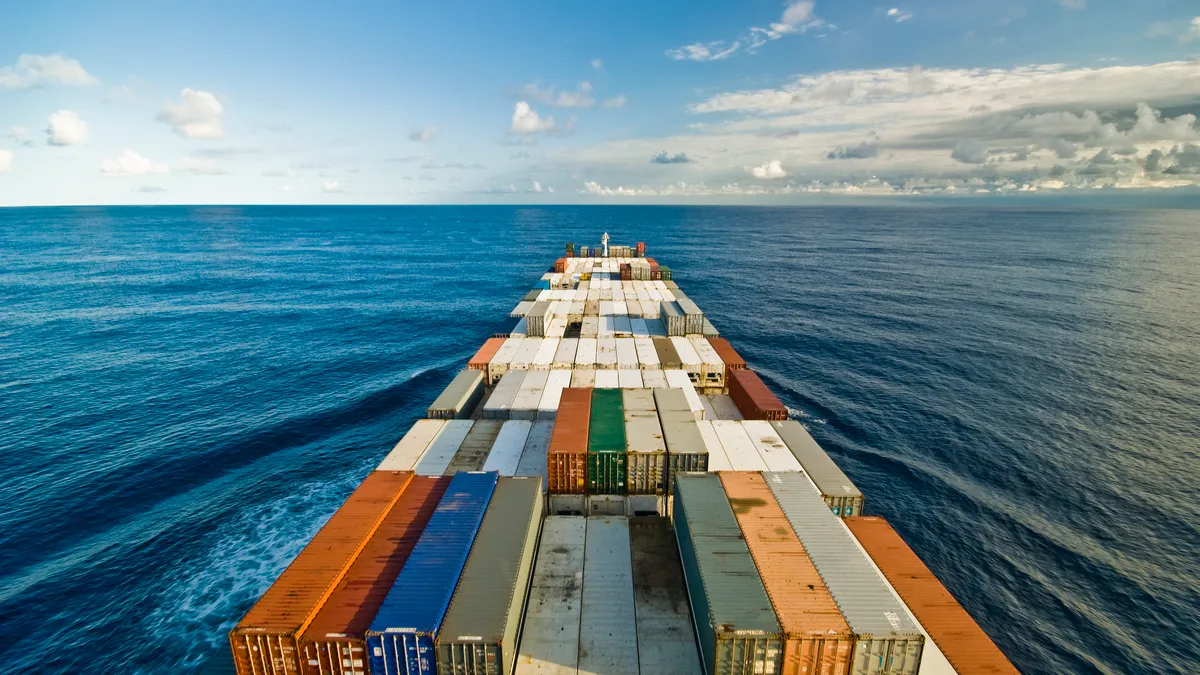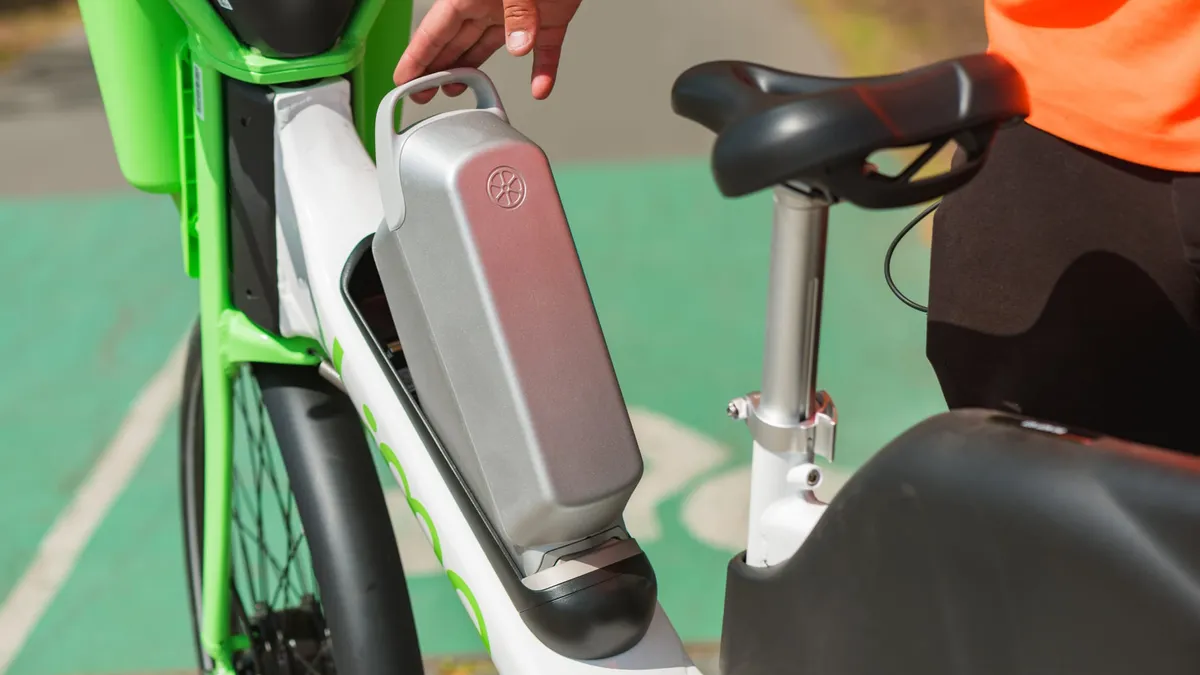Welcome to Scrap Collector, Waste Dive's Friday round-up of insights and stories you may have missed during the week.
BASEL CONVENTION DEBATES PLASTIC SCRAP PROPOSAL
UPDATE: May 13, 2019: 187 countries have approved a proposed Basel Convention amendment seeking to control global movement of plastic scrap, as reported by CNN and others. The U.S. was one of two countries that did not ratify the agreement.
"I'm proud that this week in Geneva, Parties to the Basel Convention have reached agreement on a legally-binding, globally-reaching mechanism for managing plastic waste," Rolph Payet, UN Environment's executive secretary of the Basel, Rotterdam and Stockholm (BRS) conventions, said in a statement. "Plastic waste is acknowledged as one of the world's most pressing environmental issues, and the fact that this week close to 1 million people around the world signed a petition urging Basel Convention Parties to take action here in Geneva at the COPs is a sign that public awareness and desire for action is high."
Between reports on the international plastic trade's devastating costs in Southeast Asia and revelations of rampant scrap smuggling into Malaysia, even the most casual of plastic watchers know what's up: the post-China global scrap market is in a state of ongoing turmoil, and developing countries are bearing the brunt of the consequences.
It's not all doom and gloom, however — as Monica Wilson, associate director of GAIA's U.S. office, noted at the WasteExpo conference this week, "The crisis is a remarkable opportunity — it's in crisis that we can make the biggest shifts."
Some of those shifts could be coming from Geneva this week, where signatories of the Basel Convention have gathered to discuss updates to the hazardous waste treaty — including, as reported by Reuters, a bold Norwegian proposal to monitor and restrict the export of plastics from developed to less developed countries. If passed, the amendment would require prior informed consent from importing countries before plastic scrap can be exported into their territory, as well as detailed information from the exporting country regarding the volume and type of waste.
"The greatest burden of plastic waste entering the sea is likely to arise where waste collection systems are ineffective or even non-existent," the amendment application states. "Developing countries in particular may face challenges in managing the rapidly growing volume of plastic waste … By explicitly including plastic waste in the scope of the Basel Convention, these waste streams can be controlled, and mismanagement of plastic waste avoided."
According to campaigners, the proposal enjoys support from the vast majority of member countries. Conspicuously absent, however, is the U.S.
"[The amendment] … would only allow the U.S. to export plastic waste that is already sorted, cleaned and ready for recycling," David Azoulay, director of the Center for International Environmental Law's Environmental Health Program, told Reuters. "Which is exactly the type of waste they don’t send around because it has value."
While a WasteExpo panel of CFOs maintained that no one in the industry — including its three largest companies — is exporting plastic of any kind at this time, material from the U.S. is still finding its way to Southeast Asian countries. Even so, some take issue with the very narrative of "waste dumping" itself.
"Consciously or unconsciously, when reporters, academics, and news consumers use the term 'dumping' they implicitly deny agency to the highly sophisticated trading and processing businesses that operate across the developing world," Adam Minter, author of "Junkyard Planet," told Discard Studies in a recent interview. "If there is one underlying theme in my work on discards over the years it is this: the millions of people who work on discards in the developing world have agency. Continued use of the term 'dumping' denies it to them."
IN OTHER NEWS...
NY town considers future of local transfer station's feral cat colony — Newsday
The Oceanside Transfer Station in Hempstead, New York plays host to the town's waste tonnage — and, on any given day, around 15 to 20 feral cats.
That cat colony has become the center of a years-long lawsuit, with plaintiff Stanley Lombardo — the cats' primary caretaker until his retirement from the local sanitation department in 2016 — fighting for the right to keep looking after them. Lombardo continued feeding the cats until the spring of 2017, when his former co-workers received instructions to bar him from the property — a violation, Lombardo asserts, of his First Amendment rights.
The suit was dismissed in March, but Lombardo has since filed an amended complaint. In the meantime, the colony has others on its side: town mechanic Rich Spiotta (dubbed "Catman" by his co-workers) has spent the past eight years caring for the cats, spending approximately $200 of his own money each month on food. Most of the cats, he told Newsday, have been spayed or neutered.
"They didn't ask to be born in this environment," he said. "So it's the least we can do, to give them a decent life."
AROUND THE WORLD
UK waste and recycling company calls for ban on environmentally unsustainable items — RECYCLING magazine
During this week's WasteExpo, GAIA Associate Director Monica Wilson called on the U.S. recycling industry to support overall waste reduction — especially with regard to single-use plastics.
"For years, we've been told by brands and industry to collect and recycle more plastic," she told conference attendees on Wednesday. "But at this point, with waste exports shifting from country to country, we don't know where it's ending up — and now it's the U.S. industry that's feeling the heat."
"[The recycling industry] needs to say, 'Yes, we need less production of single-use plastics so we can get our jobs done," she added.
While that may be a long way off for the U.S., U.K.-based Business Waste has stepped up to the challenge. The business waste and recycling company is calling for a ban on what it considers to be the "worst offenders" with regard to eco-unfriendly waste: plastic bags, disposable diapers, fishing lines, plastic cigarette filters, PET bottles, Styrofoam and aluminum cans.
"We truly believe that there cannot be significant change to the amount of single-use plastic — and other materials — going to landfill without equally significant action," said Business Waste spokesperson Mark Hall. "Banning these products might seem like a big step, but as we've shown, there are plenty of eco-friendly alternatives. The best way to encourage businesses to innovate and find better ways of manufacturing is to create demand for it, and that's what we believe a ban on these items would do."
SEEN & HEARD
Wrapping up my time at #WasteExpo in Vegas, marathon 3 days. Took a different approach this year of less quick turn coverage/tweeting and more interviews. Stay tuned for stories on immigration, future of landfills, climate change and more on @WasteDive in coming weeks! pic.twitter.com/0AGwLZ7d0u
— Cole Rosengren (@ColeRosengren) May 9, 2019
This was a great conversation with Rina Li, reflected in this terrific piece. Thanks @WasteDive. https://t.co/RF4eAUcibo
— Salvage Movie (@SalvageMovie) May 7, 2019
Good step, but "emerging economies" is irritating and inaccurate terminology. China and other Asian countries are asserting equality w other OECD nations large and small, not victimhood, as shown by their decisions not to take plastic scrap (but instead use their own).
— Kate O'Neill (@kmoneill2530) May 9, 2019
been there pic.twitter.com/QcTWsvgfVD
— Erika W. Smith (@erikawynn) May 5, 2019























